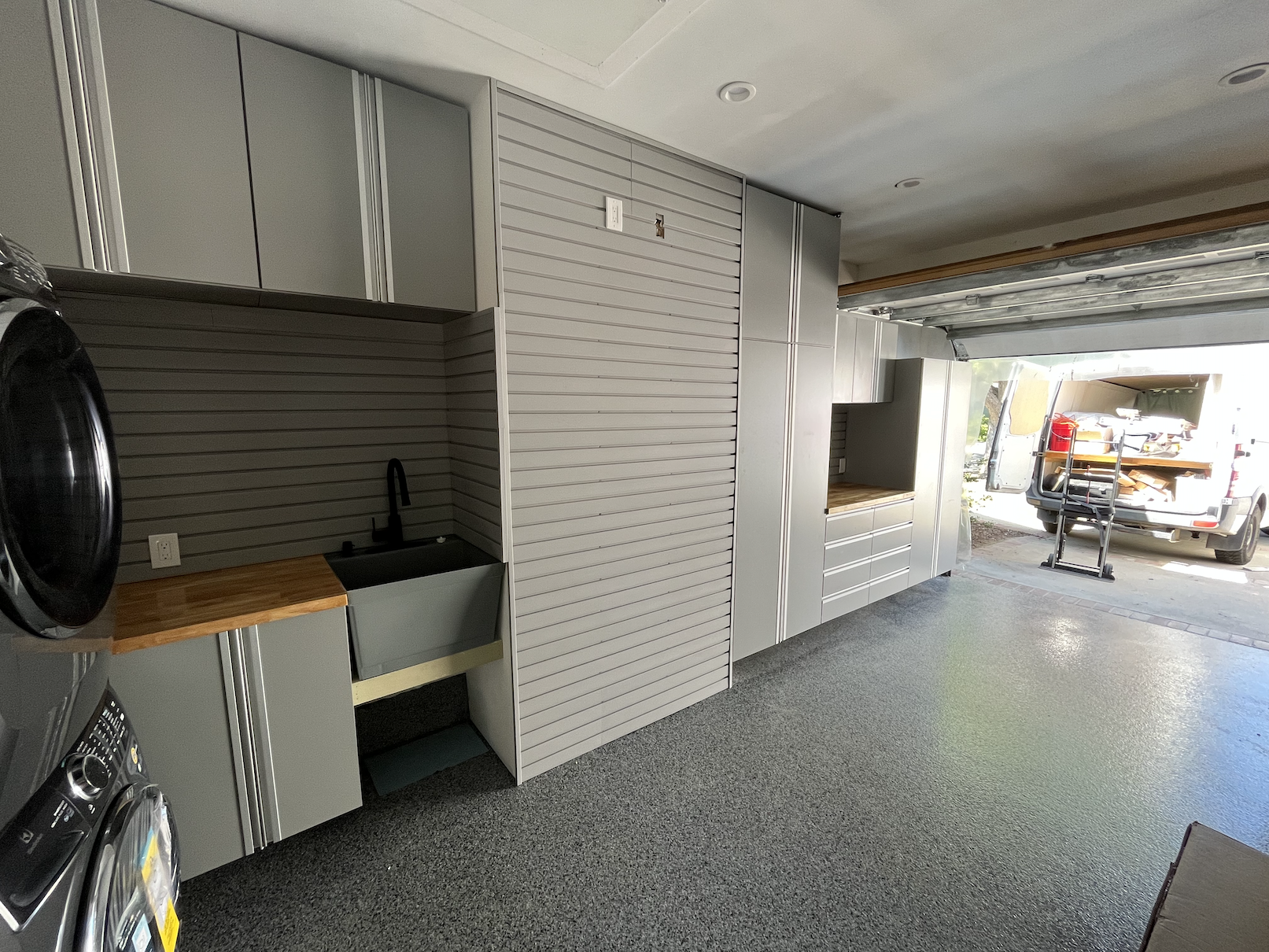Choosing the Right Epoxy Flooring: A Comprehensive Guide
Key Takeaways:
Understand Coating Types: Different epoxy coating types, including polished concrete, solid epoxy, non-slip additives, epoxy and vinyl flake, and metallic coatings, offer diverse options for garage upgrades.
Budget Considerations: Factor in the cost of various epoxy options, balancing affordability with desired features.
Long-Term Durability: Evaluate the resistance of the epoxy coating to factors like UV rays, chemicals, and heavy traffic for a lasting garage upgrade.
Customization Possibilities: Explore the customization options offered by each epoxy type to align with your aesthetic preferences.
Ease of Maintenance: Consider the maintenance requirements of the chosen epoxy coating and choose accordingly based on your comfort level.
Impact on Resale Value: Recognize that a well-designed and durable epoxy floor can potentially enhance the resale value of your home.
Warranty and Guarantees: Check for warranties and guarantees provided by manufacturers or installers to ensure long-term protection and support.





1. Polished Concrete
Polished concrete is a popular choice for those seeking a sleek and modern look. The process involves grinding the concrete surface to achieve a smooth and reflective finish. While it provides a minimalist aesthetic, it may lack the customization options available with other coatings.
| Pros | Cons |
|---|---|
| Minimal maintenance. | Limited customization options. |
| Reflective surface enhances lighting. | Susceptible to scratches and stains. |
| Cost-effective compared to some alternatives. |
2. Solid Epoxy
Solid epoxy coatings create a seamless and glossy surface, transforming your garage into a showroom-like space. This type of epoxy is known for its durability, making it resistant to abrasions and chemicals.
| Pros | Cons |
|---|---|
| Durable and long-lasting. | May show scratches over time. |
| Easy to clean and maintain. | Professional installation recommended for optimal results. |
| Versatile in design and color options. |
3. Non-Slip Additives
Safety is a top priority, especially in a garage where spills and moisture are common. Non-slip additives can be incorporated into epoxy coatings to enhance traction, reducing the risk of slips and falls.
| Pros | Cons |
|---|---|
| Durable and long-lasting. | May show scratches over time. |
| Easy to clean and maintain. | Professional installation recommended for optimal results. |
| Versatile in design and color options. |
4. Epoxy and Vinyl Flake
Epoxy combined with vinyl flake creates a visually appealing and textured surface. The vinyl flakes not only add aesthetic charm but also provide a slightly textured finish, making it an excellent choice for garage floors.
| Pros | Cons |
|---|---|
| Aesthetic appeal with a speckled finish. | Professional installation recommended. |
| Hides imperfections in the concrete. | |
| Resistant to stains and chemicals. |
5. Metallic Coatings
For a truly unique and eye-catching garage floor, metallic coatings are a fantastic option. This type of epoxy creates a marbled or pearlescent effect, adding depth and dimension to the floor.
| Pros | Cons |
|---|---|
| Stunning and customizable designs. | Professional installation is essential. |
| UV-resistant for long-lasting vibrancy. | Higher cost compared to some alternatives. |
| Highly durable and resistant to chemicals. |
In conclusion, choosing the right epoxy flooring involves considering your preferences, the intended use of the garage, and your budget. Each coating type has its own set of advantages and considerations, so it's essential to weigh these factors to make an informed decision. Remember to consult with professionals for installation, ensuring a seamless and high-quality garage upgrade.
For more insights on garage upgrades and epoxy flooring, explore our articles at The Garage Haus.
